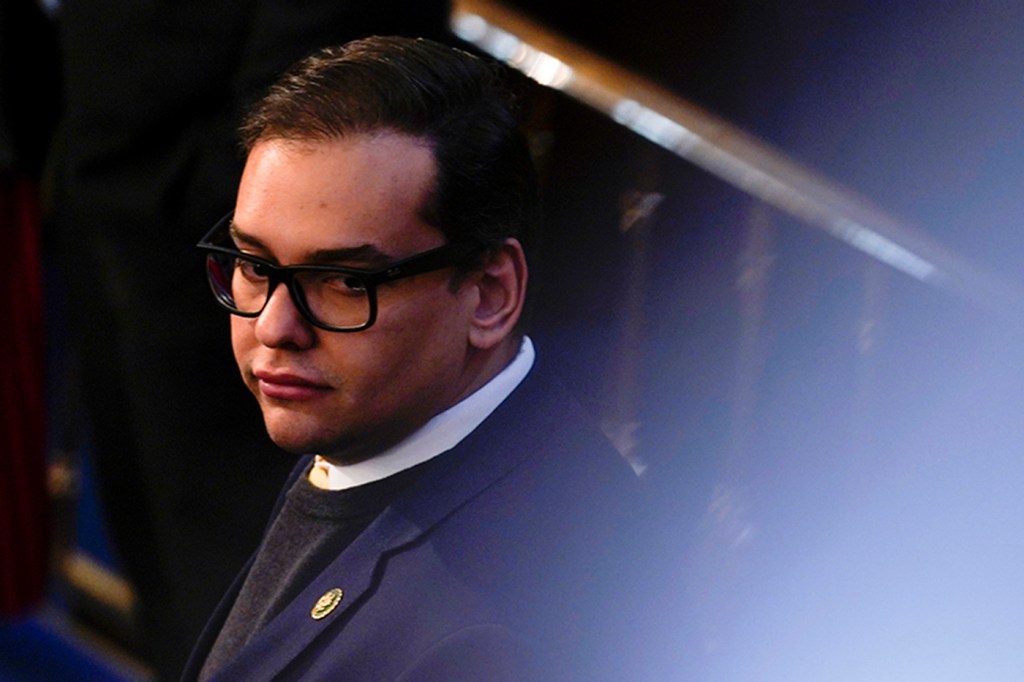How George Santos got away with it (for now)

U.S. Rep. George Santos, of New York, misled voters with elaborate lies about his background while on the campaign trail.
Santos, a Republican who was elected to an open seat in New York’s 3rd Congressional District, admitted to fabricating large chunks of his resume, including where he went to college, his professional history and real estate holdings. He also misled voters about his heritage with false claims to Jewish ancestry.
But the walls appear to be closing in. Santos now faces local, state and federal investigations—and authorities in Brazil have revived a fraud case against him in Rio de Janeiro.

Still, the question on people’s minds is: How did the Democrats not discover these glaring gaps in his resume over the course of several years? “The greatest shortcoming in this situation is Democrats’ failure to uncover and expose Santos’ lies during the campaign,” says Costas Panagopoulos, head of Northeastern’s political science department. “That’s exactly what campaigns are all about.”
Running unopposed for the Republican nomination, Santos’s opponent in the general election was Democrat Robert Zimmerman, who had access to an 87-page opposition research file that the Democratic Congressional Campaign Committee put together when Santos ran for the same House seat in 2020, according to The New York Times.
The committee’s research raised numerous other flags, including “multiple evictions; no IRS registration for an animal charity he had claimed to have created … and more recent suspicious business dealings,” the Times reported.
After Zimmerman won a relatively tight primary last year, he declined to spend what would have amounted to “tens of thousands of dollars” to do a deep dive on Santos, using scarce funds instead on other campaign activities, according to the Times.
“Strapped for time and cash, Mr. Zimmerman concluded that his money would be better spent on advertising and canvassing operations,” the Times reported.
Given the magnitude of the deception, Panagopoulos says the Democrats’ failure to pursue info on Santos only further erodes voters’ trust in the political process.
“This was a missed opportunity and a total collapse of effective opposition research by Democrats in this race,” he says.
There are institutional checks for politicians who lie about their record; but they fall on a potential offender’s own party to enforce, Panagopoulos says. For example, the Republicans could get together and decide to expel him from office.
So far, they’ve chosen not to do so.
“That may be an unrealistic expectation in such a hyperpolarized political climate and closely divided Congress, and especially for a district that could easily fall into the hands of the opposition,” Panagopoulos says.
House Speaker Kevin McCarthy, a California Republican, said this week that Santos will be seated on his assigned committees. Facing questions about his political future, the freshman congressman has said he is not stepping down.
The GOP’s indifference to Santos’s boldface deceit is “shocking,” says Michael Meltsner, the George J. and Kathleen Waters Matthews Distinguished University Professor of Law at Northeastern and author of the civil rights-era novel Mosaic: Who Paid for the Bullet?
“Those who call this ‘embellishment’ are trying to minimize his mendacity,” he says. “The question is will the chickens come home to roost with regard to the shocking indifference to telling him to go on the part of the GOP leadership.”
Democratic lawmakers are now asking the Federal Election Commission to investigate the manner in which Santos financed his campaign.
“Mr. Santos either illegally coordinated with an independent expenditure, or he illegally received a campaign contribution through a pastor. In either case, Mr. Santos likely broke campaign finance law,” said U.S. Rep. Ritchie Torres, D-N.Y.
Tanner Stening is a Northeastern Global News reporter. Email him at t.stening@northeastern.edu. Follow him on Twitter @tstening90.






